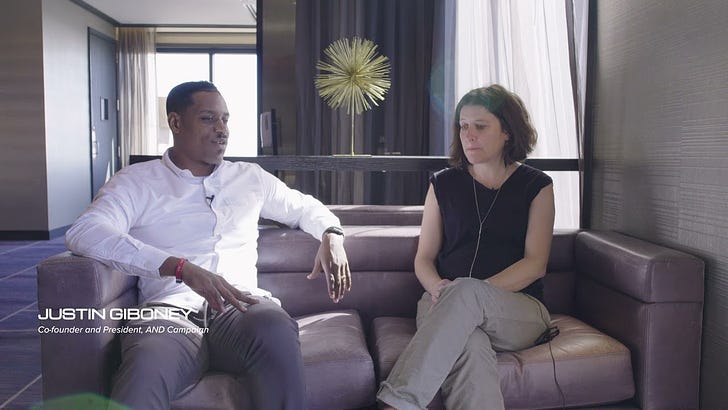Introducing Evangelicals in a Diverse Democracy
My latest collaboration with Interfaith America and Eboo Patel launches today
My friend Eboo Patel is the founder and president of Interfaith America. Eboo and I have worked together on a number of initiatives over the years, and I am pleased today to introduce our latest endeavor: Evangelicals in a Diverse Democracy.
Interfaith America exists to inspire, equip, and connect leaders and institutions to unlock the potential of America’s religious diversity. And Evangelicals in a Diverse Democracy seeks to bring more evangelicals into this interfaith movement without sacrificing or compromising their beliefs or convictions.
The project began in May of 2022 when a small group of evangelical and evangelical-adjacent leaders convened to explore why and how Christians should engage religious diversity. Over the course of three meetings, our driving question has been: “How can Christians live faithfully and neighborly in a world they don’t control?”
Our group has been intentionally small and draws from a cross-section of leaders within or proximate to American evangelicalism. It includes:
Claude Alexander, Senior Pastor, The Park Church
David French, Columnist, New York Times
Justin Giboney, Co-founder and President, The AND Campaign
Kristen Deede Johnson, Dean and Vice President of Academic Affairs, Western Theological Seminary
Karen Swallow Prior, Author and Professor
Matthew Kaemingk, Richard John Mouw Chair of Faith and Public Life, Fuller Theological Seminary
Nona Jones, Global Ambassador, YouVersion
Nikki Toyama-Szeto, Executive Director, Christians for Social Action
Russell Moore, Editor in Chief, Christianity Today
Shirley Hoogstra, President Emerita, Council for Christian Colleges & Universities
Tom Lin, President and CEO, InterVarsity Christian Fellowship
Tish Harrison Warren, Author and Speaker
Today, we launched our website and kicked off an essay series in Christianity Today that will run weekly from now until the presidential election.
My Christianity Today essay explains the connection between my work and interfaith questions:
My question of how Christians can live faithfully and as good neighbors in a world we don’t control is the interfaith question. It asks how we can be fellow citizens, coworkers, and friends with people who do not share our belief in the death and resurrection of Jesus Christ. This question has become increasingly important in a cultural context where Christians are too often seen as self-interested and unconcerned for our neighbors of other faiths and no faith, in our politics and in our personal lives.
Interfaith America is an ideal partner for this kind of work because it understands the reality of theological distinctiveness:
Interfaith America does not advance a soupy multiculturalism that pretends that all roads lead to heaven or that our differences don’t matter. It takes religious particularity seriously, identifies conflicts and tensions created by that particularity, and works to find common ground across religious differences.
There will undoubtedly be some Christians who will look askance at Evangelicals in a Diverse Democracy and its partnership with an interfaith organization led by a Muslim. They will worry that the “true Gospel” is diminished by ceding any ground in a pluralistic society. Others will find this group “too evangelical” or “too Christian.” They will push for less distinctiveness and less of a public witness.
My hope is that the substance and tone of Evangelicals in a Diverse Democracy will help Christians live faithfully and neighborly in a world they don’t control. As I note in my Christianity Today essay, we want to challenge the assumptions of both “the Christian and post-Christian right and an increasingly dechurched and unchurched left.” Instead of those narratives, “we believe Christians can be friends, neighbors, and fellow citizens with those who don’t share our faith—and that we can do so within the fullness of our Christian identity.”
I conclude my essay by returning to Eboo Patel:
My friendship with Eboo is one example of how we can find common ground with others despite real differences in our understanding of the common good. My hope is that in the years to come, this kind of friendship will become commonplace among my fellow Christians. And my prayer is that the essays that follow in this series will encourage and equip evangelicals in our diverse democracy as they ask what it means to be a good and faithful neighbor.
You can learn more about Evangelicals in a Diverse Democracy in this introductory video:






Sounds like a great project John!
Fantastic. As in "enthusiastic fan"! What a great lineup of people, and a vision that warrants full support.